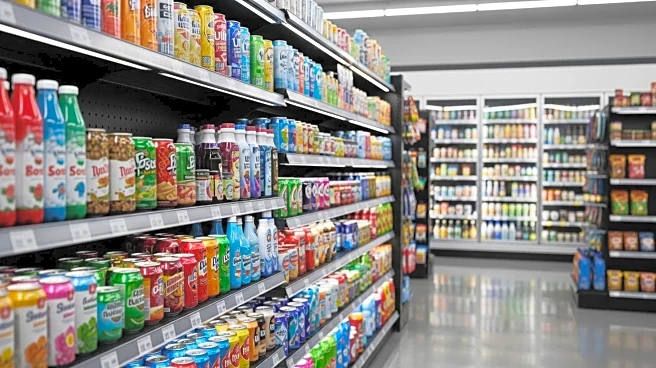What is the story about?
What's Happening?
Stephen Dacus, President and CEO of Seven & i Holdings, reported that inflationary pressures and economic uncertainty are impacting the company's convenience-store business in the United States. In the earnings report for the second quarter of fiscal year 2025, Dacus noted a decline in shopping frequency at 7-Eleven stores, driven by factors such as reduced cigarette consumption, increased online and delivery alternatives, and cuts to supplemental nutritional benefits. The company's North American revenues fell to approximately $13.1 billion, down from $16 billion in the same quarter of 2024. Despite these challenges, Seven & i Holdings is focusing on transforming 7-Eleven into a food-forward convenience store chain, planning to open 1,300 new large-format stores by 2030.
Why It's Important?
The economic pressures highlighted by Seven & i Holdings reflect broader challenges faced by the convenience store industry in the U.S. As consumers tighten their spending, convenience stores must adapt to changing demands, such as increased interest in food-forward options and digital services. The decline in revenues indicates potential difficulties for low-income households, which are particularly affected by rising living costs. The company's strategic shift towards larger, food-focused stores with enhanced digital offerings aims to meet evolving consumer expectations and could set a precedent for other retailers in the sector.
What's Next?
Seven & i Holdings plans to continue its transformation of 7-Eleven stores, focusing on expanding fresh food offerings and enhancing digital and delivery services. The company is scaling its 7NOW delivery service and improving its rewards program to attract more customers. The planned store openings and format changes are expected to lay the foundation for future growth, positioning 7-Eleven as a food destination. The success of these initiatives will likely influence the company's ability to navigate economic challenges and maintain its market position.
Beyond the Headlines
The shift towards food-forward convenience stores reflects a broader trend in retail, where consumers increasingly seek quality and value in their purchases. This transformation may have long-term implications for the convenience store industry, potentially leading to increased competition and innovation in food offerings. Additionally, the focus on digital-first stores highlights the growing importance of technology in retail, as companies strive to provide seamless shopping experiences.















